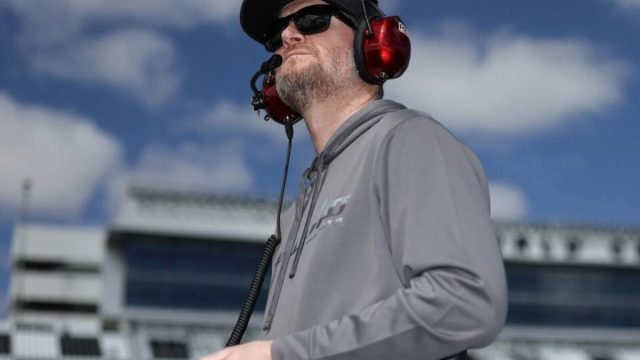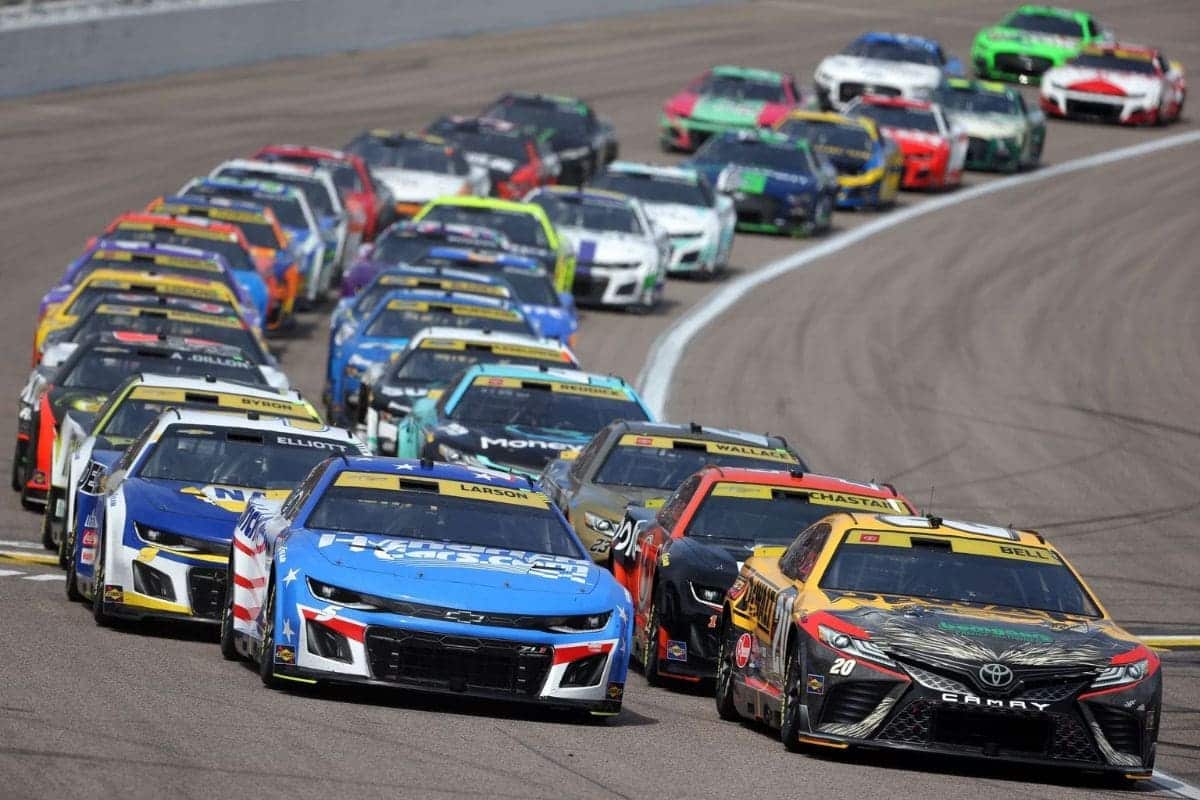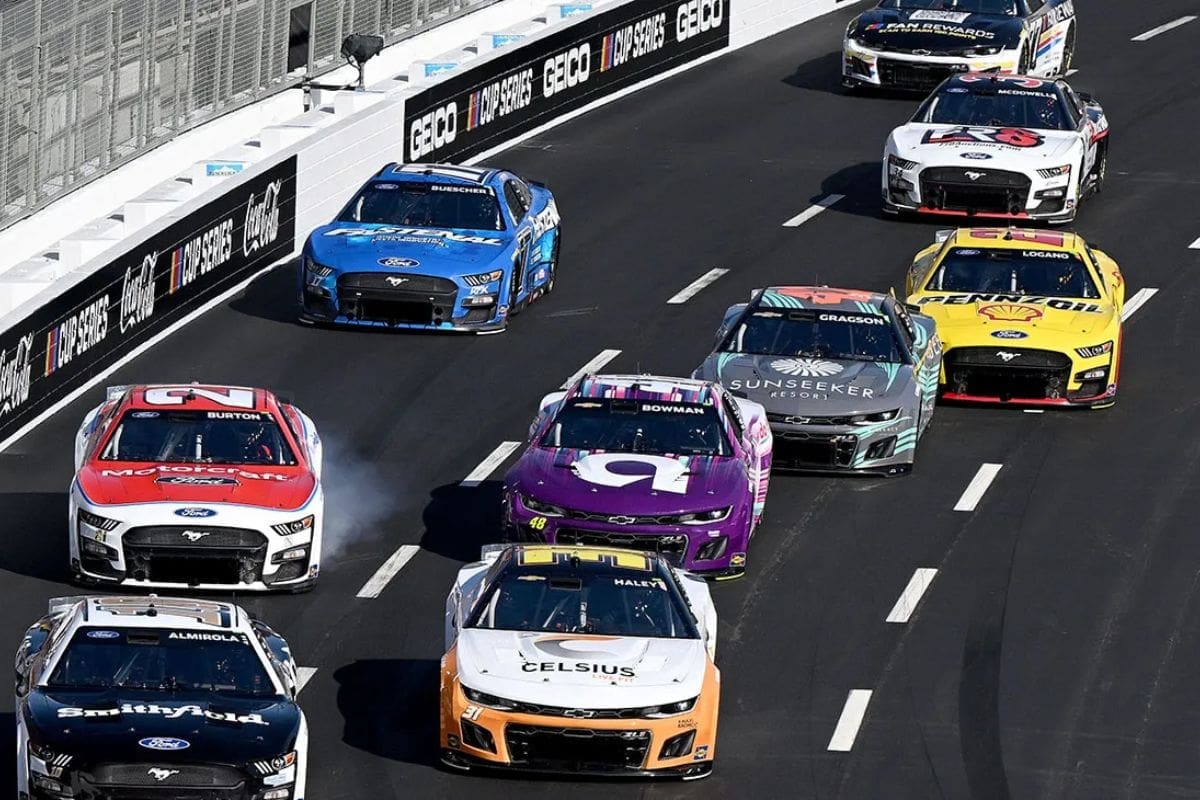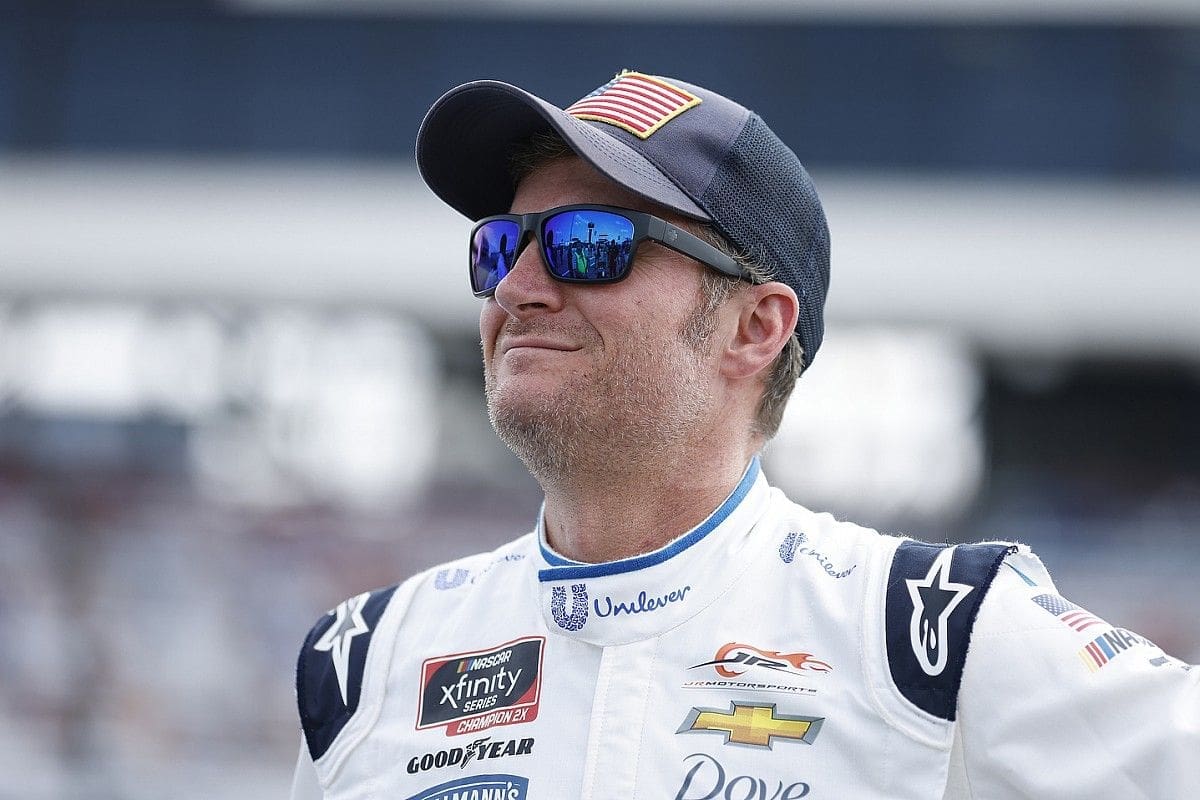Dale Jr’s Employee Shocked by JRM Boss: The recent disclosure that an employee of Dale Earnhardt Jr. was taken aback by JR Motorsports’ decision to retain their charter has sparked significant discourse within NASCAR circles. This unexpected stance highlights the intricate balance between financial strategy and competitive ambition in the constantly changing landscape of professional racing. With charter prices soaring and the market dynamics shifting after Stewart-Haas Racing‘s exit, the implications for JR Motorsports‘ future are profound. Additionally, Brett Griffin’s historical insights and Dale Jr’s subtle considerations of personal values versus financial prudence provide a compelling backdrop to this critical decision.
Key Highlights
- Dale Earnhardt Jr opted not to invest in a NASCAR charter due to prohibitive costs and financial responsibilities.
- Rising charter prices from $2 million to $40 million influenced Dale Jr’s decision against purchasing a charter.
- Dale Jr prioritizes family obligations and financial stability over high-risk investments in the charter market.
- JR Motorsports’ drivers, Sam Mayer and Sammy Smith, show strong potential but are not pursued through charter acquisition.
- Dale Jr emphasizes prudent financial management, balancing opportunities against the escalating costs in the NASCAR charter market.
Stewart-Haas Racing’s Exit and Charter Market Impact
The imminent departure of Stewart-Haas Racing from the NASCAR Cup Series is set to create significant waves across the charter market, impacting driver availability and team expansion strategies.
The exit of such a prominent team not only leaves a notable gap in the competition but also thrusts several accomplished drivers into free agency. The resulting availability of high-caliber drivers is expected to generate considerable interest among existing teams looking to strengthen their rosters. This period of change in the Cup Series landscape is likely to see a flurry of contractual negotiations as teams compete for the services of these newly available talents.
Simultaneously, the availability of Stewart-Haas Racing’s charters introduces a crucial opportunity for teams aiming to either enter the NASCAR Cup Series or expand their current operations. Charters, which guarantee a spot in each race, are highly sought-after assets and Front Row Motorsports has already bought one charter. The exit of a well-established team like Stewart-Haas Racing means that these valuable charters could be up for acquisition, prompting strategic moves from other teams that have been eyeing expansion.
Interestingly, amidst this potential reshuffling, Dale Earnhardt Jr.’s team, JR Motorsports (JRM), has taken a definitive stance by opting out of the charter market. This decision, driven by specific strategic considerations, highlights the complex dynamics at play within the NASCAR Cup Series. While other teams may see Stewart-Haas Racing’s departure as an opportunity to expand, JRM’s choice to abstain from the charter market showcases the varied approaches teams might adopt in navigating this transformative phase.
Soaring Charter Prices
Skyrocketing charter prices, which have surged from $2 million in 2016 to a staggering $40 million, present a formidable financial barrier for many NASCAR teams, including Dale Earnhardt Jr.’s JR Motorsports. This exponential increase reflects a rapidly evolving market where the value of charters has been driven by their vital role in securing a stable presence in the NASCAR Cup Series.
The dramatic inflation in charter prices is multifaceted. Initially, charters guarantee entry into all races, which is pivotal for teams seeking consistent sponsorship and media exposure. This guaranteed access amplifies the value of charters, making them highly sought after. Moreover, the limited availability of charters contributes to their surging prices. With only 36 charters in circulation, the scarcity intensifies competition among teams, pushing prices to new heights.
For JR Motorsports, the financial implications of these soaring prices are significant. Despite their reputable status and success in the Xfinity Series, the leap to the Cup Series involves substantial investment. The $40 million price tag for a charter not only strains financial resources but also necessitates strategic planning and potential sacrifices in other areas, such as vehicle development or talent acquisition.
Potential of JR Motorsports’ Drivers
Among the promising talents at JR Motorsports, drivers such as Sam Mayer and Sammy Smith have demonstrated remarkable potential to ascend to the NASCAR Cup Series, evidenced by Mayer’s recent victory at Iowa Speedway and Smith’s consistent top-tier performances. Mayer, a prodigious talent, has displayed his ability to excel under challenges, while Smith’s regular top finishes highlight his consistency and adaptability—key qualities for any driver aspiring to compete at higher levels.
Mayer’s win at Iowa not only serves as a validation of his driving skills but also positions him as a formidable contender for future opportunities in the NASCAR Cup Series. His ability to navigate the complexities of race dynamics and deliver under high-stakes scenarios is invaluable. That was his sixth career win, continuing a fast streak he started last July.
Sammy Smith, on the other hand, has been a paragon of consistency, regularly securing top finishes across different tracks with three top-fives and six top-tens in 2024. This level of performance highlights his potential to be a steady and reliable asset for any team, particularly as the landscape of NASCAR continues to evolve with the influx of young talent.
Mayer and Smith are very influential in motorsports. Sam Mayer comes from a racing family; his father, Scott, raced Indy cars. Sammy Smith has strong support too; Xfinity veteran Michael Annett guided him during his early years.
“Why don’t you go to one of those two because they’re both really rich? Well, Sammy’s not rich, but he has connections to money.” – (griffin)
Brett Griffin’s Perspective and Historical Parallels
Recognizing the rising talent within JR Motorsports, Brett Griffin recently articulated on the Door Bumper Clear podcast how Dale Earnhardt Jr could capitalize on this potential by investing in a charter, drawing strategic comparisons to the collaborative successes of Dale Earnhardt Sr with DEI and NAPA. Griffin’s perspective hinges on the premise that JR Motorsports, with its promising drivers like Mayer and Smith, stands at a critical point where strategic investment could yield substantial returns.
“When you look at Dale Earnhardt (DEI) when they started the team with Michael Waltrip, they went to NAPA and said, ‘Hey, we need you to leave Ron Hornaday in Trucks, and we need you to come with us to Michael Waltrip in Cup.’ They said yes.” – (griffin)
Griffin emphasized the importance of leveraging internal and external synergies, much like Dale Earnhardt Sr. did with Dale Earnhardt Inc. (DEI). Earnhardt Sr’s strategic collaboration with NAPA not only secured significant sponsorship but also established a robust operational framework that propelled DEI to new heights. Griffin suggested that Dale Jr could employ a similar approach, utilizing Mayer and Smith’s growing influence in the motorsports community to attract vital sponsorship deals and partnerships.
Griffin’s argument also highlights the historical success of charters in enhancing team stability and financial security. By investing in a charter, JR Motorsports could secure a guaranteed spot in races, which in turn, would attract high-profile sponsors seeking consistent exposure. This move could potentially mirror the strategic foresight demonstrated by Earnhardt Sr, whose alliances and investments fortified DEI’s competitive edge.
In late May, Bob Pockrass reported that 23XI, the team co-owned by Denny Hamlin and Michael Jordan, is very likely to become one of SHR’s charters before the 2025 season.
“When you look at what 23XI is allegedly about to do with their third charter and who they’re about to do it with, and the sponsorship they’re doing it with, that’s to help subsidize the costs of starting the third team. So, I don’t know why JR won’t do that.” – (griffin)
Dale Jr’s Personal and Financial Considerations
Amid the opportunities and external demands, Dale Earnhardt Jr has chosen not to invest in a NASCAR charter, citing the prohibitive costs and prioritizing his personal financial responsibilities towards his family. This decision highlights his prudent approach to financial management, particularly in an industry known for its high-stakes investments and volatile returns.
“I don’t understand the JRM approach to the charter… You have a Sam Mayer, and you have a Sammy Smith. Both are assumed to have very deep pockets.” – (griffin)
Dale Earnhardt Jr’s rationale is rooted in a meticulous evaluation of the current market landscape for NASCAR charters. The escalating costs associated with acquiring a charter have made the investment increasingly prohibitive, even for someone with Earnhardt’s resources and industry expertise. By opting out, he demonstrates a clear understanding that the financial burden may not justify the potential returns, especially in an environment where economic prudence is of utmost importance.
“I’m frustrated. I wish I had been smart enough to buy a charter when they were cheaper.” – (dale jr.)
Furthermore, Earnhardt’s decision reflects his commitment to his family, specifically the well-being and future of his daughters Isla and Nicole. Allocating resources judiciously ensures that his financial stability is not compromised by a high-risk investment. This approach highlights a broader, more personal value system where family obligations and long-term security take precedence over business opportunities, no matter how enticing they may appear.
“Personally, I would rather do something else with that money for the benefit of my girls… I’m not buying a charter and putting millions of dollars away into something that I can’t then recoup or sell for a profit… So I can do that with other investments or whatever for my girls.” – (dale jr.)
News in Brief: Dale Jr’s Employee Shocked by JRM Boss
The decision by JR Motorsports to retain its charter, despite surging market prices and competitive challenges, highlights the intricate interplay between financial prudence and strategic foresight in NASCAR. The reaction of Dale Jr’s employee emphasizes the broader implications for team stability and future competitiveness.
By prioritizing long-term stability over immediate financial gain, JR Motorsports exemplifies a strategic approach that balances personal values with financial management, ultimately shaping the team’s trajectory within the professional racing landscape.
Our Reader’s Queries
Q. Who is the majority owner of JR Motorsports?
A. The team, headquartered in Mooresville, North Carolina, is co-owned by Dale Earnhardt Jr., a former NASCAR Cup Series driver, alongside his sister Kelley Earnhardt Miller, and Kelley’s husband, L.W., who is also a former racer.
ALSO READ: Dale Jr. and Racing Community Mock NASCAR After Chastain Incident



